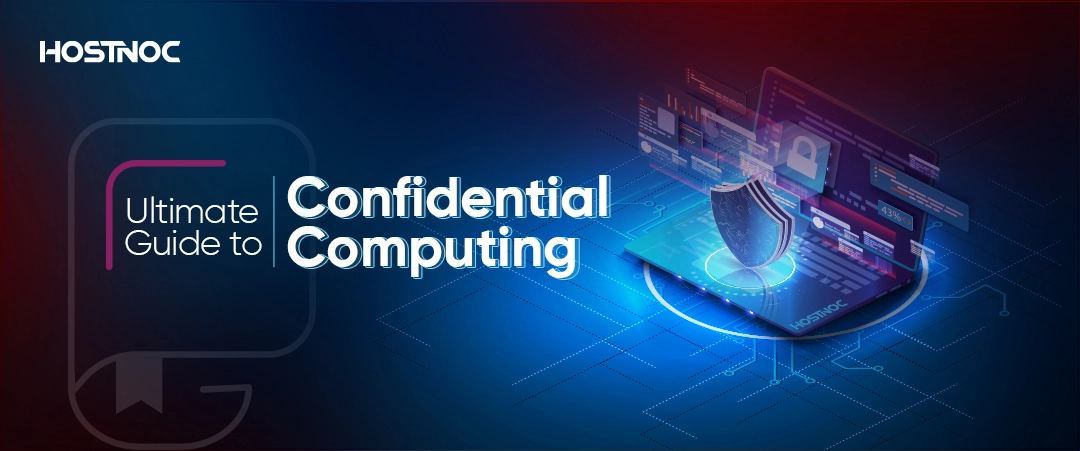Blogs

Copyright Vs Trademark: Which One You Should Opt For and Why?
May 20, 2024
What is a Secure Web Gateway?
June 6, 2024Ultimate Guide To Confidential Computing
Data security and privacy is one of the biggest concerns for enterprises. Your sensitive business data is not safe whether it is in rest or in motion. Businesses can use different security tools, technologies and techniques in order to protect that data but what about data in processing. That is where confidential computing comes to your rescue. It provides an environment to keep your data safe during processing.
Are you interested in learning more about confidential computing? How does it work? What are its advantages and disadvantages? If so, this ultimate guide will help you find answers to all these questions. Continue reading to find out more about this fascinating data security technology.
Data security and privacy are one of the biggest concerns for enterprises. Your sensitive business data is not safe, whether it is at rest or in motion. Businesses can use different security tools, technologies, and techniques in order to protect that data, but what about data in processing? That is where confidential computing comes to your rescue. It provides an environment to keep your data safe during processing.
Are you interested in learning more about confidential computing? How does it work? What are its advantages and disadvantages? If so, this ultimate guide will help you find answers to all these questions. Continue reading to find out more about this fascinating data security technology.
- Ultimate Guide To Confidential Computing
- What is Confidential Computing?
- How Does Confidential Computing Work?
- What are the Common Types of Confidential Computing?
- What are the Advantages of Using Confidential Computing?
- What are the Disadvantages of Using Confidential Computing?
- What are The Common Use Cases of Confidential Computing?
- What is the Confidential Computing Consortium?
Ultimate Guide To Confidential Computing
What is Confidential Computing?
Confidential computing is a data security and privacy technique that is used to safeguard data stored in a central processing unit during processing. It does this by isolating data in a CPU enclave. Only authorized and privileged users have access to that CPU enclave. This keeps CPU resources hidden from the program or a person who is trying to access it.
How Does Confidential Computing Work?
Confidential computing addresses the security risks of data exposure during processing by utilizing a trusted execution environment (TEE), a hardware-based architecture within the CPU. This trusted execution environment acts as a secure coprocessor with embedded encryption keys and attestation mechanisms, allowing only authorized application code access.
Read more: Cloud Access Security Broker: Everything You Need To Know
It effectively safeguards sensitive data from threats like memory dump attacks and unauthorized access during processing. In the face of attacks, the TEE promptly denies unauthorized access attempts, ensuring the confidentiality of data throughout its processing and making it inaccessible to external entities, including cloud providers and operating systems. This approach establishes a robust defense mechanism against potential adversaries and enhances overall data security.
What are the Common Types of Confidential Computing?
There are three main types of confidential computing.
- Virtual machine isolation
- Function isolation
- Application isolation
What are the Advantages of Using Confidential Computing?
Here are some of the advantages of using confidential computing.
Data Protection:
One of the primary advantages of confidential computing is enhanced data protection. It allows sensitive data to remain encrypted and secure even during processing, preventing unauthorized access and reducing the risk of data breaches. an essential consideration in modern data science applications.
Privacy Assurance:
Confidential computing provides a higher level of privacy for users and organizations by ensuring that the data processing is carried out in a secure and isolated environment, protecting sensitive information from being exposed to third parties.
Secure Processing in Untrusted Environments:
It enables secure processing of data even in untrusted environments, such as cloud environments or third-party dedicated servers, where the infrastructure may not be fully trusted.
Intellectual Property Protection:
Confidential computing helps protect intellectual property by allowing companies to process sensitive algorithms or proprietary data without exposing the underlying code or information to external entities.
Regulatory Compliance:
It facilitates compliance with data protection regulations by providing a secure framework for processing sensitive information, ensuring that organizations meet the legal and regulatory requirements regarding data handling and privacy.
What are the Disadvantages of Using Confidential Computing?
Just like every other technology, confidential computing also has its downsides. Here are some of the disadvantages of using confidential computing.
Performance Overhead:
Implementing confidential computing may introduce some performance overhead due to the encryption and isolation mechanisms, potentially affecting the speed of data processing.
Complexity and Cost:
Integrating confidential computing solutions can be complex, requiring specialized hardware, software, and expertise. This can result in increased implementation costs and operational complexity.
Limited Adoption:
Confidential computing technologies were not yet widely adopted, which may limit interoperability and compatibility with existing systems.
Potential for Misuse:
While confidential computing enhances security, it may also be used for malicious purposes if not implemented and managed properly. It is essential to have robust security measures in place to prevent misuse.
What are The Common Use Cases of Confidential Computing?
Here are some of the common use cases of confidential computing.
Secure Multi-Party Computation (SMPC):
Collaborative data analysis where multiple parties can jointly analyze their data without revealing the raw data to each other.
Data Analytics:
Processing sensitive data for analytics and machine learning while keeping the data encrypted throughout the computation.
Supply Chain Security:
Ensuring the security of sensitive information in supply chain processes, such as tracking and verifying the authenticity of products, without exposing critical data.
Financial Services:
Performing secure financial transactions and computations on sensitive financial data in a confidential and protected environment.
Healthcare:
Protecting patient data during medical research and analysis, enabling collaboration among healthcare providers without compromising privacy.
What is the Confidential Computing Consortium?
The Confidential Computing Consortium is an industry group that aims to advance the adoption of confidential computing technologies. It was launched by the Linux Foundation and includes members from various industries, including technology, cloud services, and security.
Read more: 7 Data Predictions For 2024
The consortium works on promoting open-source projects, establishing standards, and driving collaboration among stakeholders to enhance the security and privacy of sensitive data in computing environments. It focuses on fostering an ecosystem that supports confidential computing across different platforms and architectures.
Did this guide help you in understanding what confidential computing is and how it works? Did you fully understand its pros and cons as well as its applications by reading this guide? Share it with us in the comments section below.
Muhammad Osama
Featured Post
SSL Certificate Chain: A Comprehensive Guide
In the modern era of the internet, security is of utmost importance, especially when sensitive data such as passwords, credit card numbers, and personal information is […]
7 Cybersecurity Trends That Will Dominate in 2026
As we approach 2026, the digital landscape continues to evolve at an unprecedented pace, bringing both innovation and new threats. Cybersecurity has become a cornerstone of […]
Black Hat 2025: 10 Cool New Cybersecurity Products Announced At The Conference
Black Hat 2025 conference took place from August 2–7 2025 in Las Vegas, saw a wave of next‑gen security tools focused on AI, agentic systems, data […]












